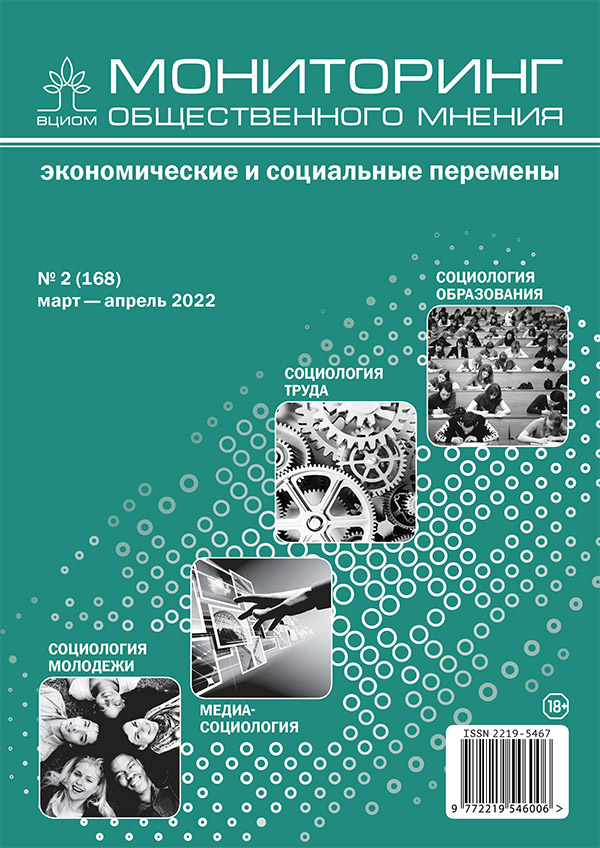Is Moscow a City of Contacts? Formats and Scale of Muscovites’ Interaction with Migrants
DOI:
https://doi.org/10.14515/monitoring.2022.2.1920Keywords:
social distance, host populations of Moscow, attitudes towards migrants, contacts with migrants, attitudes towards migration, xenophobia, Central Asia, Transcaucasia, North CaucasusAbstract
The authors set out to study the extent and formats of interaction between the host population of a metropolitan city and the “visible others” in various social contexts (contacts as friends, neighbors, colleagues, etc.). Based on the analysis of the survey of Moscow residents (N = 452) conducted in December 2020, the authors examine the interaction between locals and newcomers from several perspectives. Firstly, these are the main social spheres and situations in which such contacts most often occur and how Muscovites assess this interaction. Secondly, these are features of their assessment of the degree of closeness to and alienation from the migrants from different countries/regions (Transcaucasia, Central Asia, republics of the North Caucasus). Finally, according to the projective part of the study, the inclination of city dwellers to possible contact with “visible others” in different everyday situations was analyzed: from the appearance of such people as neighbors, colleagues, and bosses to choosing them as friends and spouses.
Acknowledgments. The study was funded by RFBR and EISR, project number № 20-011-31684 (2020-2021).
Downloads
Published
How to Cite
Issue
Section
License
Copyright (c) 2022 Monitoring of Public Opinion: Economic and Social Changes Journal (Public Opinion Monitoring) ISSN 2219-5467

This work is licensed under a Creative Commons Attribution-NonCommercial-ShareAlike 4.0 International License.






